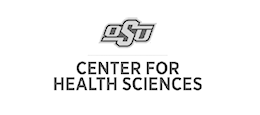
TRAINING FOR HEALTHCARE
We’ve spent thirty years enabling physicians, nurses, and clinical staff to step up to Crucial Conversations and influence healthcare for good. Using our research and training solutions, our clients have reduced medical errors, elevated patient care, and improved employee satisfaction. Our latest focus is helping caregiver teams address nursing turnover and retention.

SOLVING NURSING TURNOVER
Crucial Learning and The American Organization for Nursing Leadership (AONL) surveyed 1,559 nurse managers and 562 clinical staff to identify what contributes to nursing turnover and retention.
We found that nurse managers who are skilled at creating a culture of connection have nurses that are 81% more likely to say they intend to stay in their position indefinitely compared with those who work in cultures of disconnection. Learn how the most successful leaders are creating cultures of connection to improve nurse retention.

DIALOGUE SAVES LIVES
Crucial Conversations for Mastering Dialogue Healthcare gives people the skills to transform disagreement into dialogue for improved relationships and results. With skills to speak their minds honestly and respectfully, people collaborate better, make better decisions, foster safer and healthier workplaces, and improve staff engagement and satisfaction.
The course is available in virtual and in-person learning formats and includes 27 practice scenarios and 12 videos set in clinical and healthcare office settings that address healthcare challenges.
Impact of Dialogue in Healthcare
Crucial Learning has partnered with the AACN, AORN, and AONL to study the impact of dialogue in caregiver teams. We’ve found that the real problem in healthcare is silence. When people don’t speak up, teams experience avoidable medical errors, toxic interpersonal dynamics, high turnover, and diminishing patient care.

While 84% of doctors and nurses have seen coworkers take dangerous shortcuts, fewer than 10% voice their concerns. Silence Kills: The Seven Crucial Conversations in Healthcare finds that cultures of dialogue lead to significant reductions in medical errors, increased patient safety, higher productivity, and lower staff turnover.

Every day, healthcare professionals make calculated decisions to not speak up—even when safety tools alert them to potential harm. The Silent Treatment: Why Safety Tools and Checklists Aren’t Enough to Save Lives shows that safety tools do not compensate for communication failures in the hospital

While team drama is frustrating, our study Crucial Moments in Healthcare finds that the real problem is silence. How well or poorly employees speak up and address five behavior challenges predicts outcomes like patient safety, quality of care, quality of patient and family experience, and staff engagement.
TALK WITH A CLIENT ADVISOR
Improving Healthcare
See how the skills and principles taught in our courses have helped healthcare organizations around the world improve patient safety, employee satisfaction, organizational culture, trust in leadership, and more.















